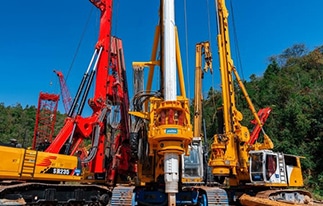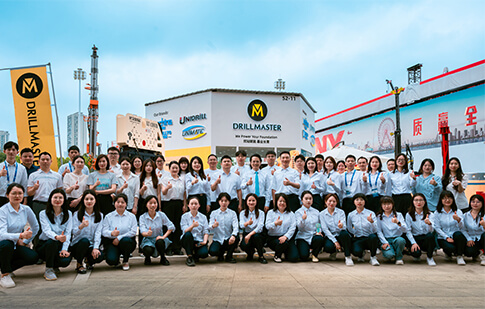International trade offers opportunities but also risks. This real case study shows how a buyer from Uruguay fell victim to a China supplier scam, losing nearly $40,000 to a fraudulent company that looked completely legitimate.
Related Reading: Scams in the Used Machinery Industry
Supplier fraud is not limited to aluminum products. Similar problems also exist in other industries. In fact, we previously analyzed the chaos in the used construction machinery export market in our article: Ugly Truth Behind China Used Construction Machinery Exports. Many fraudulent tactics are similar—fake companies, manipulated documents, and unrealistic promises.
Case Background: A Seemingly Reliable Chinese Supplier
Our Uruguayan client purchased aluminum products(Aluzinc Steel Coil) worth around USD 40,000 from a company located in Jiangsu, China.
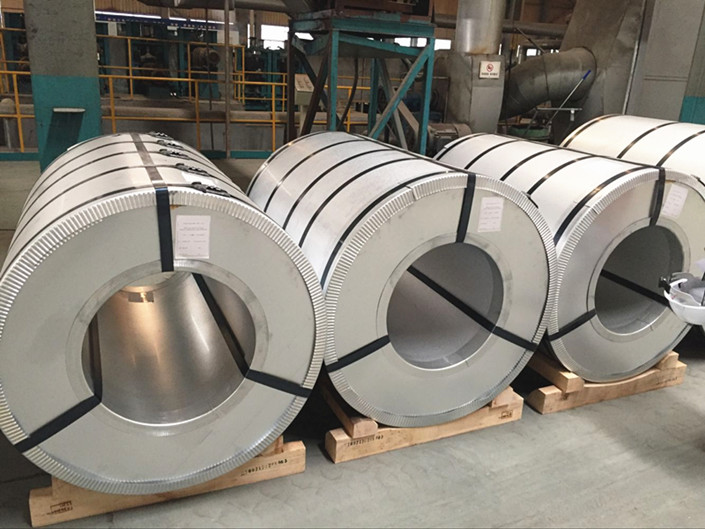
On the surface, the company appeared professional and trustworthy:
- It had a well-designed corporate website.
- It provided a stamped business license.
- The sales contact claimed to be an official company employee.
To strengthen trust, this “employee” frequently sent photos of production workshops, packaging, and even personal life updates, showing friendliness and care. For the buyer, everything looked genuine.
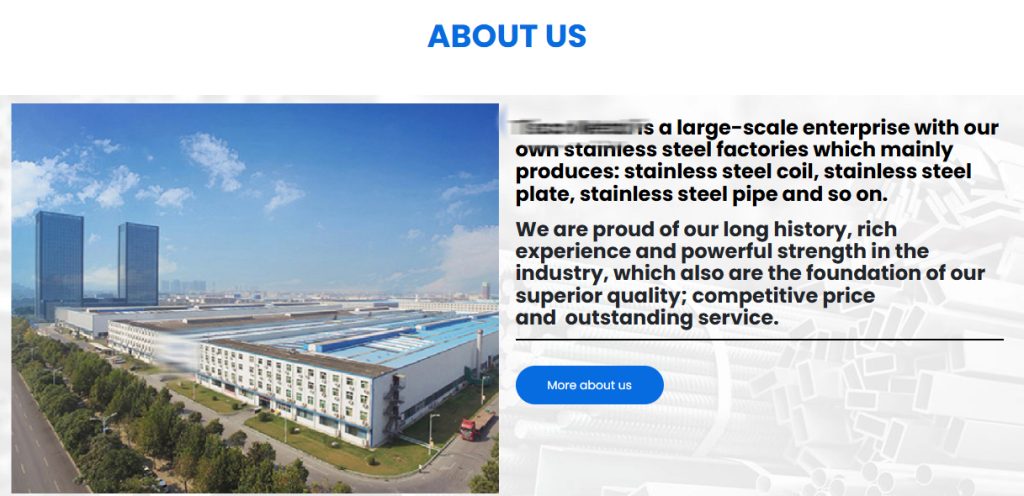
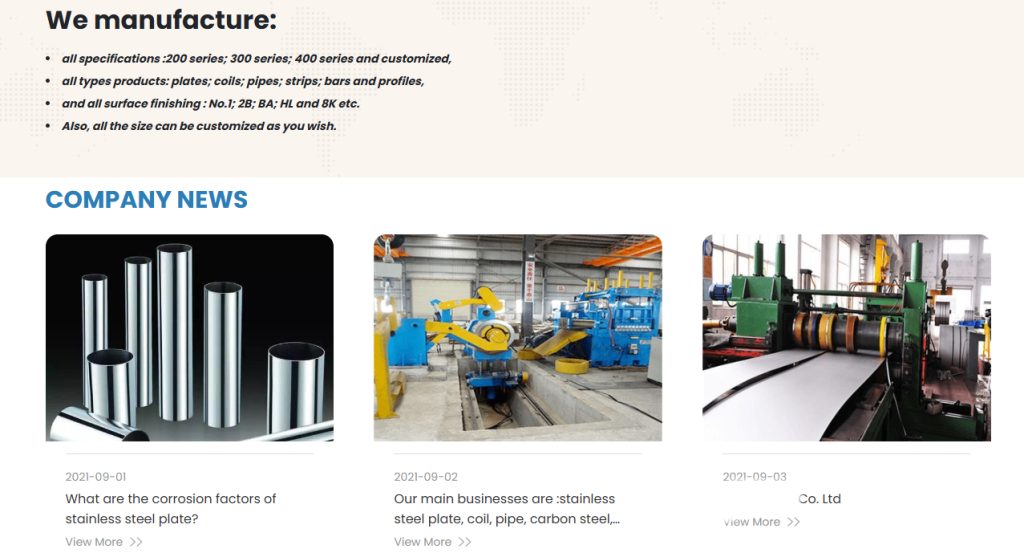
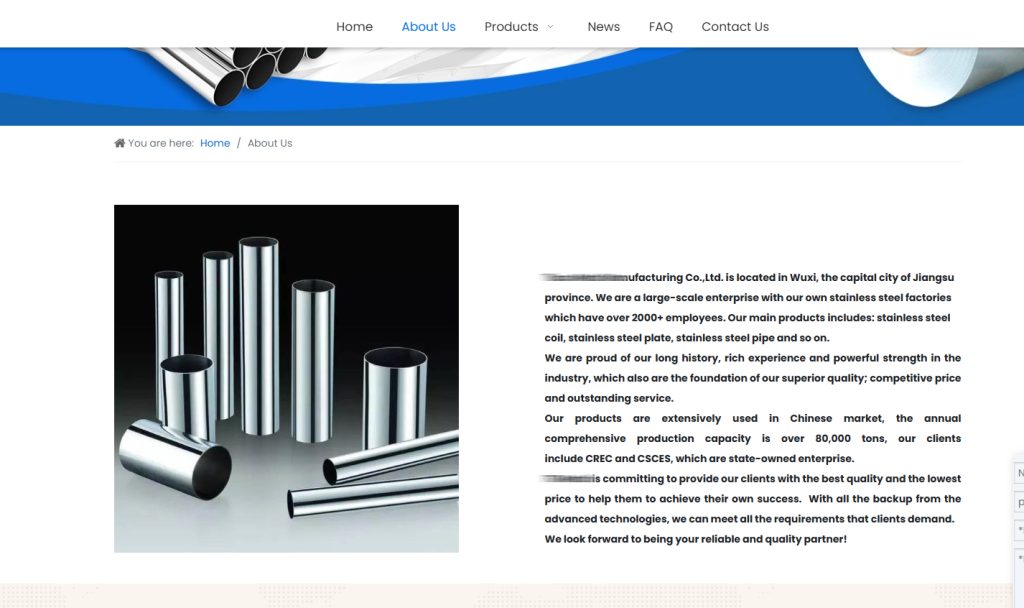
The Company Website
Transaction Process: From Trust to Deception
The deal started smoothly:
- After the deposit was paid, the supplier claimed production had begun.
- The buyer even received “stock preparation” photos before shipment.
- Reassured by these updates, the buyer paid the final balance.
But six months later, the goods were still not shipped.
Investigation Findings: Red Flags of a Fake Chinese Company
At the request of the Uruguayan buyer, imachine decided to assist him in verifying this supplier. Our team traveled hundreds of kilometers to conduct on-site inspections at two different addresses listed on the buyer’s proforma invoice (PI) and business license.
What we discovered revealed several clear warning signs that proved this was a fake Chinese supplier scam.
1. Company Website Without Real Legitimacy
The company website was registered in Hong Kong. Unlike mainland China, Hong Kong websites do not require a government filing (ICP license). This means the site had no official endorsement of authenticity.
2. Suspicious Business License
Although the buyer was given a stamped business license, we could not find the company on trusted Chinese business information platforms such as Qichacha or Aiqicha. This showed that the license was likely fake or edited.
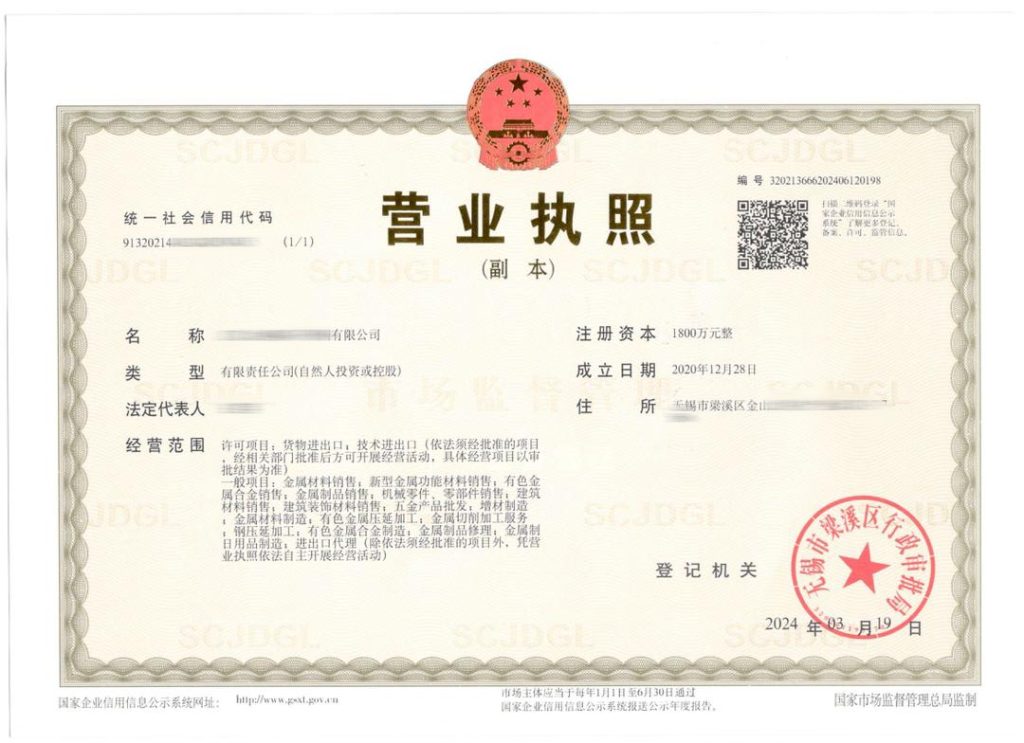
Fake License
3. Fake Office and Factory Addresses
The addresses on the business license and the PI (Proforma Invoice) were inconsistent. During our field investigation, both locations were empty—no staff, no equipment. Local security guards confirmed that many people had already come to verify the same “company.”
4. Communication Patterns of China Supplier Scam
The contact person replied quickly to casual topics. But whenever the buyer asked about shipping dates, they went silent. Later, when we called the phone number on the PI and mentioned we represented the Uruguayan client, the person immediately hung up and never answered again.
These patterns reveal a professional fraud group. By keeping in touch and pretending goods were “in production,” they created an illusion of legitimacy while avoiding direct evidence of fraud.
Legal and Practical Difficulties in Recovering Funds
Unfortunately, the chances of recovering money from this kind of China business fraud case are extremely low:
- Cross-border reporting: To file a case in China, the buyer must go through a Chinese embassy to notarize a power of attorney. Uruguay does not have a Chinese embassy, so the client would need to travel to Brazil. Cross-border authorization rarely succeeds.
- Personal reporting in China: The other option is for the buyer to come to China directly to file a police report. However, the distance, costs, and evidence collection timeline (often 3–6 months or longer) make it impractical.
In reality, recovering the $40,000 is almost impossible.
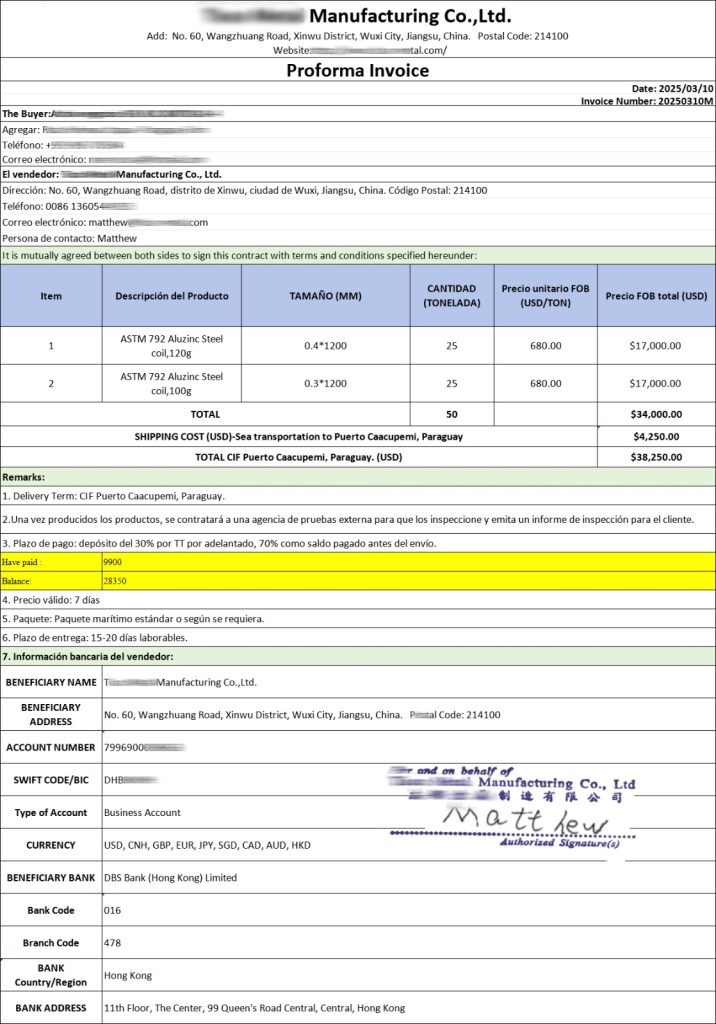
Different Addresses on PI and License
Lessons Learned: How to Avoid a China Supplier Scam
This case highlights that fraudsters can disguise themselves as legitimate companies. To avoid similar traps, international buyers should:
Verify the Supplier’s Business Registration
Check if the company is listed on Chinese business information platforms like Qichacha or Aiqicha. A genuine Chinese company should appear in their databases.
Confirm Website ICP Filing
For companies in mainland China, a valid website should have an ICP license. Websites without an ICP license need to be treated with extra caution.
Request Live Video Calls or On-Site Inspections
A legitimate business should be willing to do a live video call with you from their office or factory. This is a simple, effective way to confirm the business’s physical existence and see if the person you’re speaking with is actually there. Even better, hire a trusted third-party inspection service or a friend in China to visit the location. Empty facilities are a clear red flag.
Examine Production and Marketing Materials
When the supplier sends you photos or videos of goods being produced, look for details. Is there a company logo on the boxes, machinery, or employee uniforms? Ask the sales contact to appear in a video or photo holding a current newspaper. Scammers use stock photos; a live, personalized image is much harder to fake.
Use Secure Payment Methods
Avoid paying the full balance before receiving proof of shipment. Consider escrow services, letters of credit, or staged payments with verified checkpoints. If a supplier asks you to send payment to a personal account or an account in a different country (especially Hong Kong), this is a massive red flag.
Watch Communication Patterns
Scammers often maintain friendly contact but avoid giving clear shipping details or timelines. Sudden silence when discussing delivery is a strong indicator of fraud.
China Supplier Scam, Warning for Global Buyers
The Uruguayan buyer’s $40,000 loss serves as a serious warning. China supplier scams are becoming increasingly sophisticated, with fake websites, forged licenses, and carefully crafted personal interactions.
International buyers must remain vigilant, conduct thorough verification, and use protective measures before making payments. By learning from real cases like this, companies can reduce the risk of falling into similar traps.



